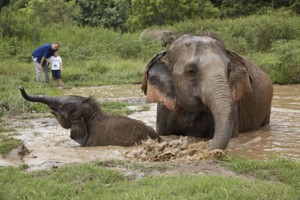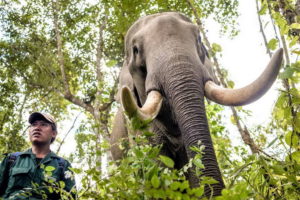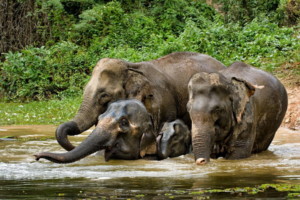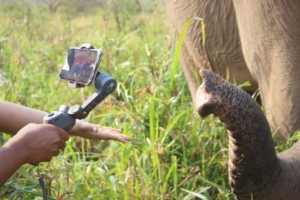Vietnam’s ‘little tiger’ meat trade and why travel & tourism should help tackle it
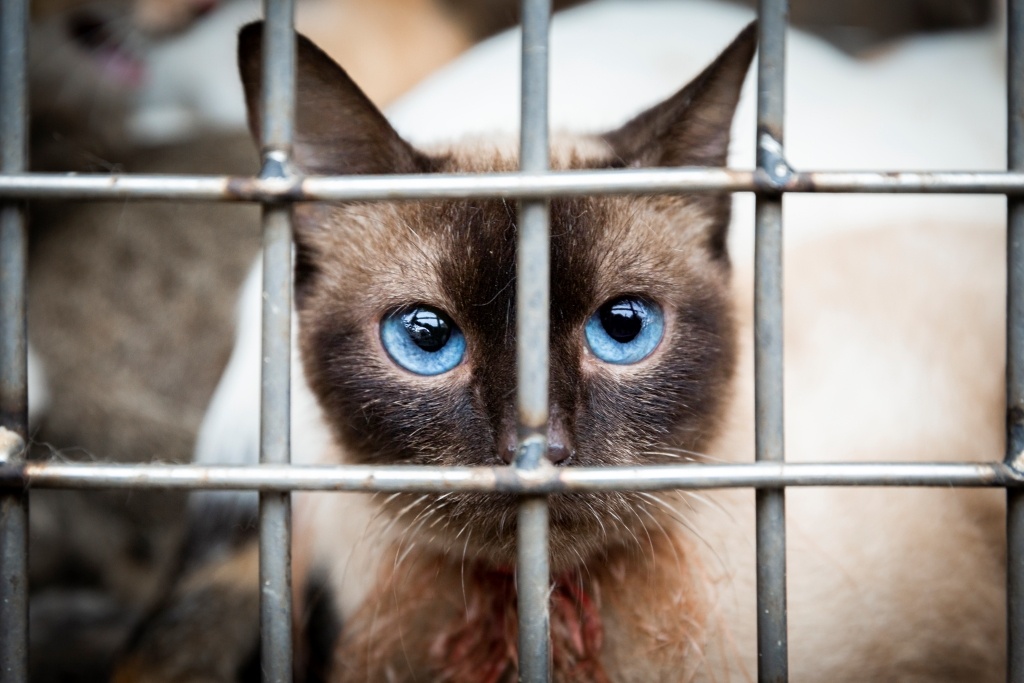
From the front line of a fight to end Vietnam’s trade in cats for their meat, veterinarian Katherine Polak of FOUR PAWS International explains why the cat meat trade presents a danger to travel & tourism, and how industry stakeholders can pledge their support. It’s a “Good Tourism” Insight.
Images in this post may cause distress.
In Vietnam, more than a million cats, many of them stolen pets, are captured and killed each year for a Vietnamese dish called thịt mèo (or ‘little tiger’).
Once a small-scale trade localised in the north of the country, FOUR PAWS investigations suggest that the trade is now nationwide, despite being consumed by less than 10% of society, and it is lucrative, unregulated, and often illicit in nature. Not only does the trade cause immense suffering for both local pet owners and animals stolen for the trade, but it also presents a real risk to public health and international tourism.
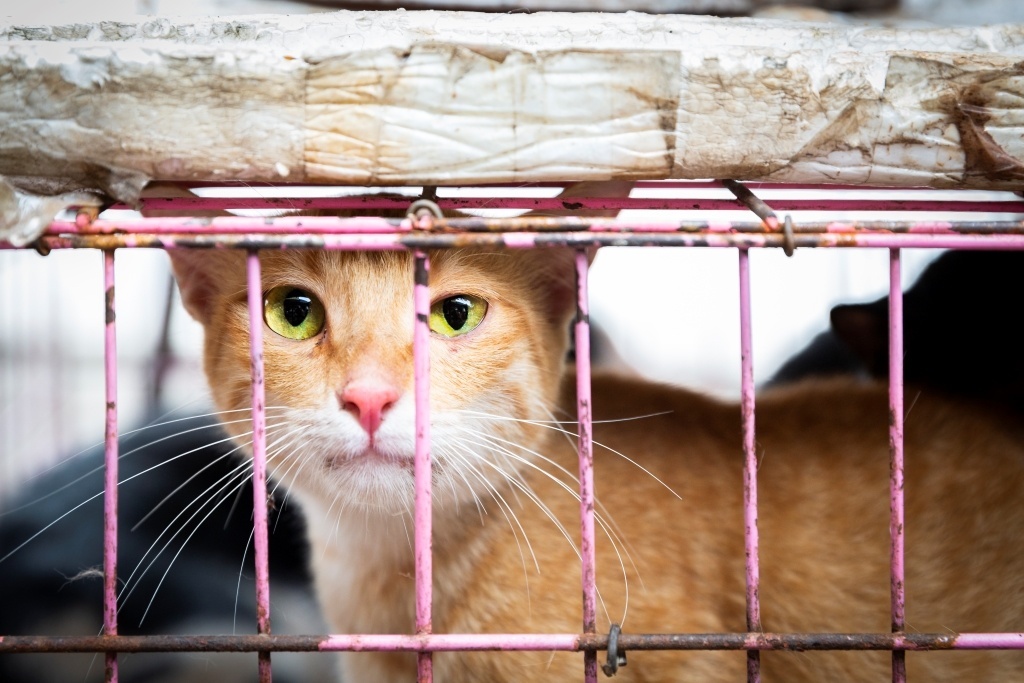
As a veterinarian, I am foremost committed to animal health and welfare. I am also concerned about the wider implications of this trade on society. As an expat living in Southeast Asia, working alongside Vietnamese animal welfare charities, I long to find a solution to end the trade and the ongoing pet theft, as well as the often dangerous confrontations between pet owners and thieves that are becoming all too common. I know it is also vitally important to protect tourists.
FOUR PAWS investigations have found that tourists are not only exposed to unimaginable animal cruelty through visits to markets, for example, where dogs and cats are sold, but also to potentially infectious zoonotic diseases. Public polling suggests that tourist exposure to animal abuse while on their travels causes significant distress and deters future visits to the destination (Savanta ComRes survey (2017) commissioned by Born Free Foundation). It has therefore become increasingly important that the tourism industry considers the impact that these animal trades may have on tourism, especially given the impact of COVID-19.
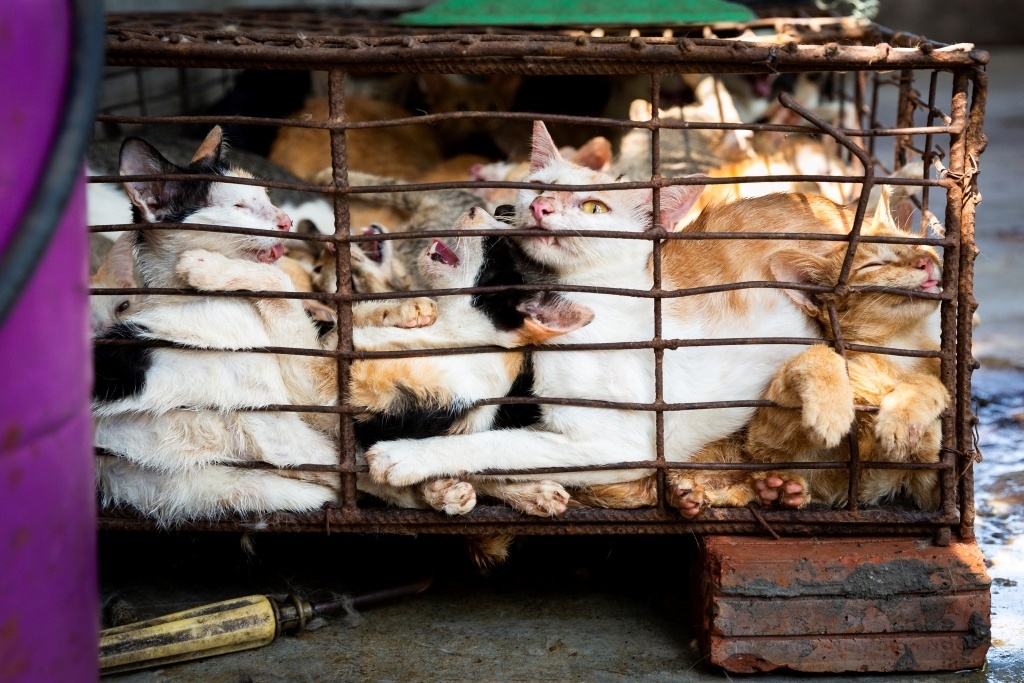
The cat meat trade’s effect on tourism
Whilst local tourism does not directly promote the cat meat trade, tourists are exposed to it and tourism is affected by it. This was acknowledged in 2018 by the Vice Mayor of Hanoi Mayor Nguyen Van Suu, who urged the City’s residents to stop dog meat consumption given that it “negatively impacts the image of a civilised and modern capital”. This view is supported by the many tourist reports accessed on TripAdvisor that recount harrowing experiences of seeing dogs and cats crammed into cages waiting to be slaughtered, or their identifiable carcasses hanging outside of restaurants in the Hanoi tourist zone.
A further concern, which can only be addressed by bringing an end to the cat and dog meat trade in Vietnam, is the implications of disease on tourism and wider society. We are only too aware of the devastating effects of the COVID-19 pandemic on tourism. The dog and cat meat trade is not only linked to the transmission of numerous zoonotic diseases that can jump from animals to humans, but also their national and regional spread. Sick animals are frequently sold or stolen for the meat trade, and transported into busy cities, markets, and slaughterhouses, often over 15 hours away. Only an end to the dog and cat meat trade will eliminate the zoonotic disease risks that stem from it.
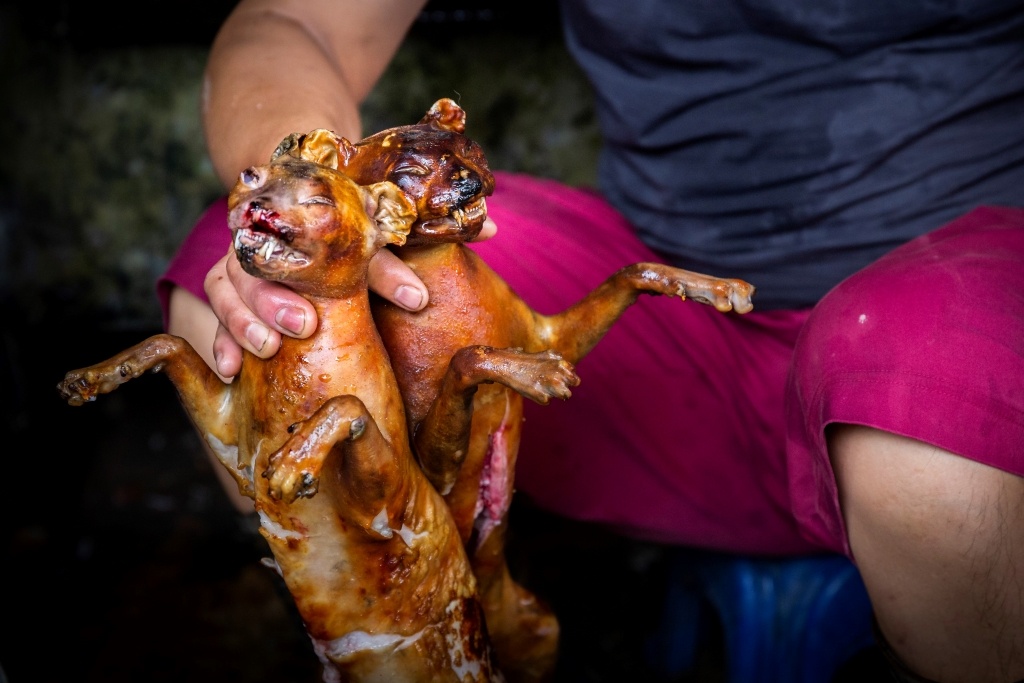
Attitudes towards animals are changing in Vietnam
While the situation may appear bleak, public attitudes towards animals within Vietnam are rapidly changing. I have seen first-hand a growing animal welfare movement, increased pet ownership, and local charities speaking out on animal welfare issues.
In 2020, a government-recognised association focused on felines was established. And joint actions between FOUR PAWS and local charities in the cities of Da Nang and Hoi An have spayed/neutered and provided other veterinary services to cats.
FOUR PAWS is also helping local people who want to end their involvement in the trade. Mr Pham Van Duong and his wife, who live in Thai Binh (a city in Northern Vietnam also known as the “cat meat capital” of Vietnam) expressed their sincere interest in closing their restaurant and slaughterhouse to pursue a different trade; one that didn’t involve killing animals. In December 2020, FOUR PAWS helped them convert their property into a second-hand motorbike shop. The 20 cats and five dogs that were awaiting slaughter at their site were taken to our partner charities PAWS for Compassion and Vietnam Cat Welfare who will provide ongoing care, and hopefully find them their forever homes.
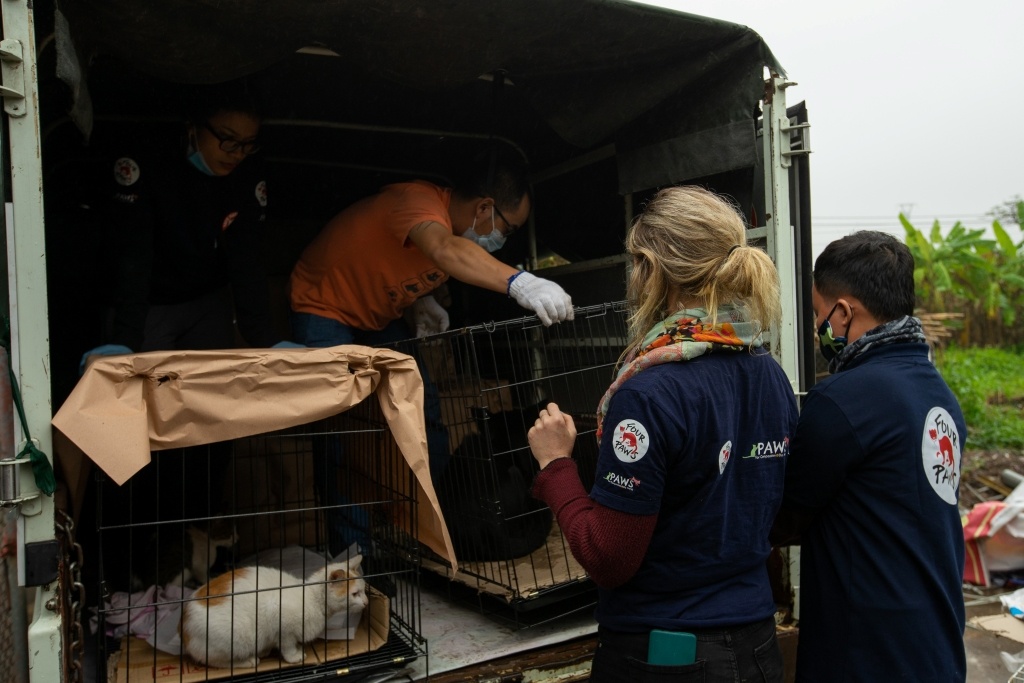
What can tourism do to protect people and animals?
Through platforms like The “Good Tourism” Blog, FOUR PAWS seeks to inform national tourism boards and tour operators of the health and reputation risks associated with the cat and dog meat trade and highlight the need for immediate action to raise awareness, prevent disease, and eliminate the potential source of a pandemic in the future. Unlike COVID-19, the associated disease risks can be easily eliminated by ending the trade now.
So far, the FOUR PAWS campaign to end the trade has received the support of 24 tour operators, many based in Vietnam, along with the Adventure Trade Travel Association and over a million people from around the world who have signed FOUR PAWS’ petition. This is testament to the fact that this issue is of global relevance, and one that must be addressed for the sake of people and animals, as well as the reputation of tourism destinations and industry stakeholders.
Specifically, FOUR PAWS is asking tour operators to:
- Pledge support for an end to the dog and cat meat trade. Help us urge governments in Southeast Asia, including Vietnam, to end the dog and cat meat trade. This is the only way to eliminate disease risk and to fulfil the region’s obligations to eliminate rabies.
- Report cases of animal cruelty to dcmt-vietnam@four-paws.org.
- Support the veterinary care and re-homing of cats and dogs rescued from the trade by contacting travel-pledge@four-paws.org.
Learn more about the trade and how you can help end it at FOUR PAWS.
What do you think? Share a short anecdote or comment below. Or write a deeper “GT” Insight. The “Good Tourism” Blog welcomes diversity of opinion and perspective about travel & tourism, because travel & tourism is everyone’s business.
Featured image (top of post): May 21, 2019 in Hanoi, Vietnam: Cat in a cage, ready to be sold, killed, and cooked © FOUR PAWS
About the author
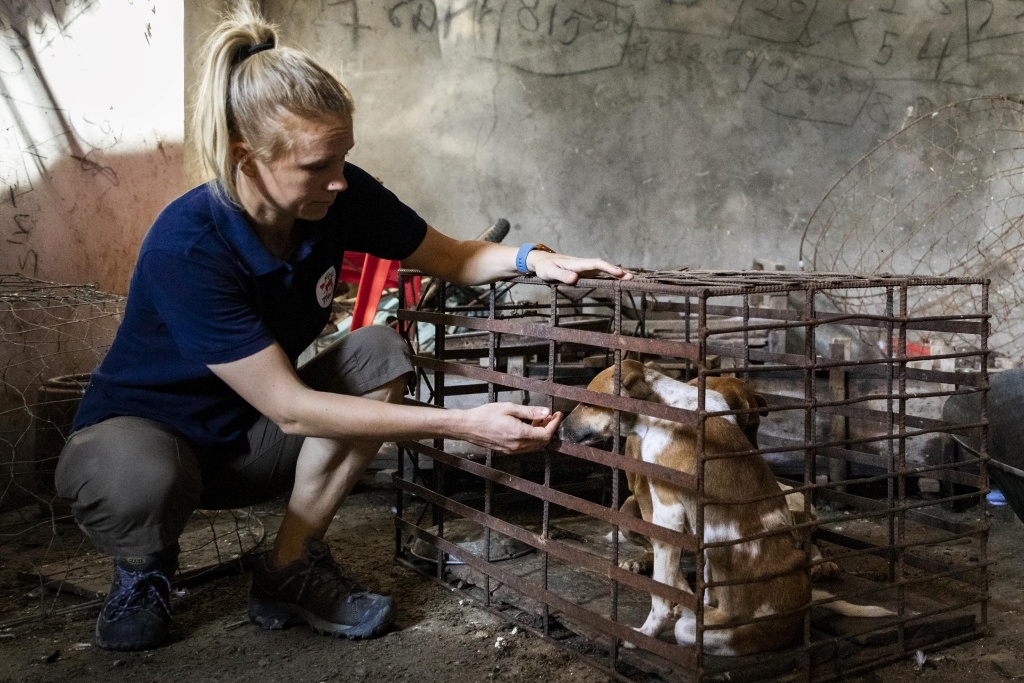
Katherine Polak, DVM, MPH, MS, DACVPM, DABVP (Shelter Medicine Practice), is a veterinarian dedicated to improving animal welfare in “limited-resourced communities” around the world. A boarded specialist in both Shelter Medicine and Veterinary Preventive Medicine, Dr Polak’s focus is veterinary training, high-quality, high-volume spay/neuter programs, and organisational capacity building.
Dr Polak currently serves as the Head of Stray Animal Care – Southeast Asia for FOUR PAWS International, a global animal welfare organisation based in Vienna, Austria. FOUR PAWS works to end the suffering of wild, stray, and farm animals. Based in Bangkok, Thailand, Katherine manages a variety of companion animal programs in Thailand, Cambodia, Indonesia, and Vietnam, with a special focus on combating the dog and cat meat trade in the region.
Katherine also serves as faculty at the University of Florida where she teaches in the online Maddie’s Shelter Medicine Program, and is a member of the World Small Animal Veterinary Association’s Animal Welfare Committee.


